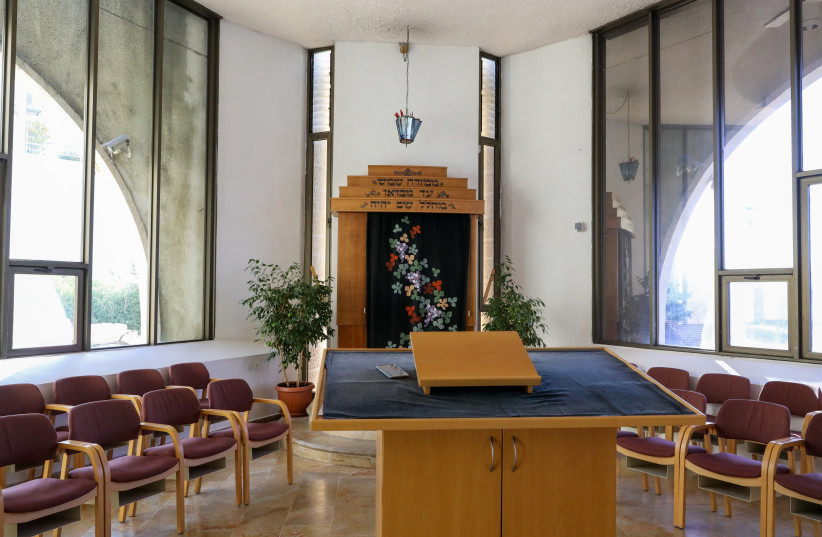(JTA) — At the recent convening of Conservative/Masorti movement leaders, we were holding a workshop on new approaches to engage intermarrying couples when a participant spoke frankly about her own family. She said she felt like a failure and was not sure what to do.
“We’ve raised our daughter with a thorough Jewish experience,” she explained. “But she recently told us she is going to marry someone of another background.”
A member of the workshop panel responded quickly and emphatically: “Mazal Tov!”
Murmurs quickly spread throughout the room. Some people echoed the hearty wishes of congratulations and wanted to give the parent permission to fully embrace the young couple. Others were more measured, reflecting a strong, traditional preference for marrying Jewish partners.
The tension in that room over how hearty our blessing should be reflects the tension we face in the Conservative/Masorti movement. That tension was addressed in a new report from our movement’s Rabbinical Assembly, which I lead, issued this week, exploring ways to better welcome interfaith couples.

I was brought up in the 1970s and 1980s to believe that if I intermarried, it meant I didn’t care about Judaism and the Jewish people.
But in more than two decades of my rabbinate, I have not found that to be the case. Some of the most beautiful things said to b’nai mitzvah in my congregation came from parents who are not formally Jewish. They have been full partners — and in some cases, the driving force — in organizing religious school carpools, hosting a Passover seder, lighting candles, putting a mezuzah on their door and taking trips to Israel. Some ultimately chose to convert to Judaism.
Intentional Jewish homes
And let’s face it: there are certainly households with two Jewish parents who make far fewer intentional choices about creating a Jewish home.
Being a rabbi also proved different than I expected when I was ordained. In rabbinical school, my teachers taught me a lot about rabbinic authority. When I actually started at my synagogue, I discovered that my influence with congregants was based much more on trust and relationship than on my title.
Given these experiences, it’s no wonder that our Conservative/Masorti movement is changing how we engage intermarrying and intermarried couples and families.
A series of prohibitions — around officiation, synagogue hiring, rituals and public roles — were developed in previous decades on the premise that intermarriage would inevitably lead to Jews leaving our people, and that religious authority could influence congregants’ choices.
But that culture of disapproval did not generally dissuade individuals in their marriage choices. It certainly did not draw people closer to our communities. Instead, too often, it pushed them away.
It is time for us to reconsider some of those practices.
These policies and prohibitions also made it much too easy for rabbis and couples to avoid hard conversations about what it means to create a Jewish home together. Whether it was discussing what kind of wedding ceremony could have Jewish integrity for both the officiant and the couple, or what it would mean to raise Jewish children, our policies — and our attitude — have meant we didn’t have the opportunity to engage. Why bother having these conversations when our culture simply disapproved of intermarriage?
The issue of officiation at a wedding ceremony by a rabbi is a complex conversation, which our rabbis, and so many others in our communities, take seriously. The Rabbinical Assembly report issued this week recommends that the prohibition around officiation at interfaith weddings be maintained at this time.
But the report was clear that this standard of rabbinic practice does not need to be the start (or end) of our conversations. Our culture of welcoming and engagement can start with how we announce all of our weddings and lifecycle events; how we offer blessings as a community in the days before and after a wedding; the pastoral conversations we have with all couples about creating a Jewish home; and how we include everyone in our communities during lifecycle events, in worship, in Torah study and in acts of kindness and justice.
This new invitation is also reflected in the establishment of a Joint Working Group between the RA and United Synagogue of Conservative Judaism (USCJ), which represents our congregations, on how we can better engage intermarrying couples.
For more than 100 years, our movement has learned how to conserve tradition while evolving with a culture of respect, inclusion and egalitarianism. I have no doubt we will continue to do so.
As I listened to the murmurs in the room when the mother shared her feelings of failure, it was clear to me that our movement has a duty not just to love every Jewish person — but to love the ones whom they love. I recognize this both as a parent and as a rabbi. This love inspires me to find the words to congratulate couples and their families and then to to help them find a path toward a meaningful Jewish life.
The views and opinions expressed in this article are those of the author and do not necessarily reflect the views of JTA or its parent company, 70 Faces Media.
